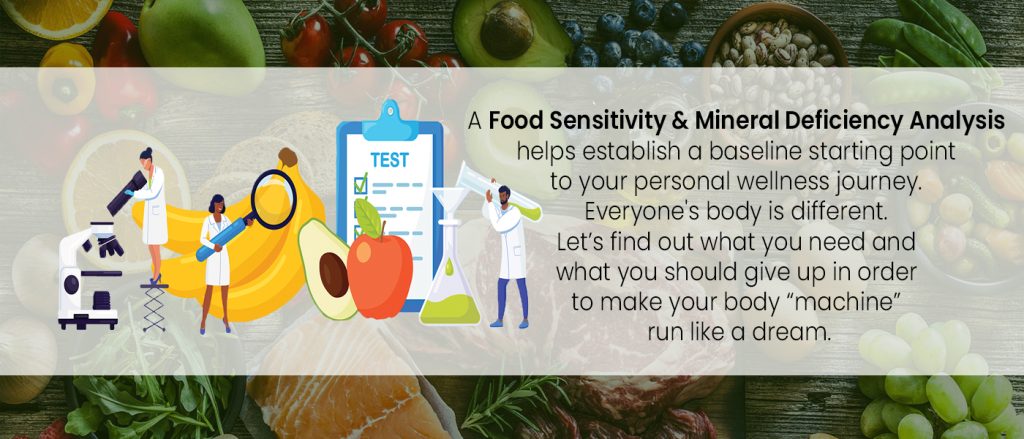Your cart is currently empty!
How Hormone Imbalance Affects Gut Health and What You Can Do
I. Introduction
- Explanation of hormone imbalance and its effects on the body
II. Hormone Imbalance and Gut Health
- How hormone imbalance affects gut health and what you can do
- Natural ways to balance hormones and improve gut health
III. Causes of Hormone Imbalance
- Dietary and lifestyle factors that contribute to hormone imbalance
- The role of stress in hormone imbalance
IV. Signs and Symptoms of Hormone Imbalance
- Common signs and symptoms of hormone imbalance
- How to identify if your gut health is affected by hormone imbalance
V. Testing for Hormone Imbalance
- Types of tests that can be done to identify hormone imbalance
- How to get tested
VI. Treatment for Hormone Imbalance
- Natural remedies for hormone imbalance
- Medical treatments for hormone imbalance
VII. Conclusion
- The importance of maintaining hormone balance for good gut health
Final thoughts and recommendations
We cover how hormone imbalance affects digestion and what you can do. We discuss how they can impact various bodily functions, including gut health. If you’re experiencing digestive issues, it may be due to hormonal fluctuations. In this blog post, we’ll explore the relationship between hormones and digestion, discuss common symptoms of hormone imbalance and digestive issues, and provide natural remedies that can help alleviate these problems.

The Gut-Hormone Connection
The gut-hormone connection is a complex interplay between the endocrine and digestive systems. Hormones are chemical messengers that regulate various bodily functions, including digestion and metabolism. A hormone imbalance can cause a range of digestive issues such as bloating, constipation, or diarrhea.
Maintaining hormonal balance can help alleviate skin problems caused by hormone imbalances while improving gut health at the same time.
Recent studies suggest that there is a strong link between hormonal imbalances and acne. Certain hormones like cortisol, insulin-like growth factor-1 (IGF-1), and dihydrotestosterone (DHT) have been found to trigger sebaceous gland activity which leads to clogged pores and acne breakouts. Therefore, maintaining hormonal balance through diet modifications or natural supplements may help alleviate skin problems caused by hormone imbalances while improving gut health at the same time.
How Hormones Affect Gut Health
Hormonal changes during menstruation can cause a range of gastrointestinal disturbances, including bloating, constipation, and diarrhea. These symptoms are caused by fluctuations in estrogen and progesterone levels throughout the menstrual cycle.
Stress hormones such as cortisol can also impact digestion by slowing down gut motility and causing inflammation. Chronic stress can lead to long-term digestive issues such as irritable bowel syndrome (IBS) or inflammatory bowel disease (IBD).
Thyroid hormone plays an important role in regulating gut motility. Low thyroid hormone levels may contribute to constipation while high levels may result in diarrhea. Thyroid imbalances should be addressed to promote optimal digestive function and overall health.
The Role of the Microbiome
A balanced microbiome is crucial for maintaining gut health. The gut microbiota consists of trillions of microorganisms that play a vital role in the digestion and absorption of nutrients, as well as protecting against harmful pathogens. An imbalance in this microbiome can lead to various digestive issues such as bloating, constipation, and diarrhea. To cleanse the micro-villa that absorb these minerals one can use Gut Support capsules and do a Minerals Fast for best result.
Microbiota also influence hormone levels in the body through chemical messengers known as metabolites. Hormones such as estrogen, testosterone, and cortisol are affected by these metabolites. For example, an overgrowth of certain bacteria can increase estrogen levels leading to skin issues like acne.
To promote a healthy microbiome, one should focus on consuming a diverse range of plant-based foods rich in fiber prebiotics while reducing processed foods’ intake. Additionally, detoxifying plant supplements may help restore balance within the gut for individuals experiencing chronic digestive issues caused by hormonal imbalances or other factors related to lifestyle choices or medication use..
Common Hormonal Imbalances and Their Impact on Gut Health
Estrogen dominance can cause a range of digestive issues, including bloating and constipation. This hormonal imbalance occurs when estrogen levels are too high in relation to progesterone levels, which disrupts the natural balance of chemical messengers in the body. Insulin resistance is another common hormonal imbalance that can lead to gut inflammation. High insulin levels cause the release of inflammatory cytokines that damage intestinal lining and contribute to conditions like leaky gut syndrome.
Low testosterone levels can also contribute to digestive problems such as increased fat storage, blood sugar imbalances and acne because this hormone plays a crucial role in regulating metabolism. Testosterone helps regulate insulin sensitivity by improving muscle mass growth and reducing visceral fat accumulation, which can protect against metabolic disorders associated with poor gut health.

Symptoms of Hormonal Imbalance and Digestive Issues
Hormonal imbalance can lead to various symptoms, including irregular periods, mood swings, and weight gain. These hormonal changes can also affect the gut health of an individual. Symptoms such as gas, bloating, diarrhea or constipation are common signs of a digestive issue caused by hormone imbalance. It is important to address these symptoms early on as they may indicate underlying health problems.
Digestive issues such as Irritable Bowel Syndrome (IBS) and Leaky Gut Syndrome are often associated with hormonal imbalances in the body. IBS is characterized by abdominal pain and discomfort with changes in bowel movements while Leaky Gut Syndrome occurs when there is damage to the intestinal lining leading to inflammation and nutrient malabsorption. The symptoms of these conditions can be managed through dietary changes that improve gut health and reduce inflammation levels in the body.
Common Symptoms of Hormonal Imbalance
Hormonal imbalances can cause a range of symptoms, including irregular periods or no periods at all, acne breakouts, and hair loss or thinning hair. Irregular periods may indicate an imbalance in estrogen and progesterone levels, which can affect ovulation and fertility. Acne breakouts are often caused by increased testosterone levels in females, while hair loss or thinning hair can be linked to fluctuations in thyroid hormones.
If you experience any of these symptoms along with digestive issues like bloating or constipation, it could be a sign of hormone imbalance affecting your gut health. It’s important to consult with a healthcare professional to determine the root cause of your symptoms before trying any remedies on your own.
Common Digestive Issues and Their Symptoms
Gastroesophageal reflux disease (GERD) can cause heartburn, regurgitation, and chest pain. This is caused by the acid in your stomach leaking into your esophagus. Irritable bowel syndrome (IBS) symptoms include abdominal pain, bloating, and constipation or diarrhea. Inflammatory bowel disease (IBD) often causes diarrhea with blood and mucus along with weight loss.
- GERD:
- Heartburn
- Regurgitation
- Chest Pain
- IBS:
- Abdominal Pain
- Bloating
- Constipation/Diarrhea
- IBD:
- Diarrhea with Blood & Mucus
- Weight Loss
Natural Remedies for Hormonal Imbalances and Digestive Issues
The gut and hormones are intricately connected, and a hormonal imbalance can lead to digestive issues such as bloating, constipation, and diarrhea. Making dietary changes is one of the most effective ways to address these problems. Including more fiber in your diet through whole grains, fruits, and vegetables may soothe inflammation in the gut while also stabilizing hormone levels. Additionally, avoiding processed foods that contain preservatives or chemical additives can further reduce inflammation.
Stress management is another important factor for regulating hormones and improving digestion naturally. Chronic stress disrupts both adrenal gland function and cortisol levels which impact estrogen production leading to hormonal imbalances. Incorporating mindfulness practices such as meditation or yoga into your routine can help reduce stress responses by calming down the body’s nervous system resulting in improved digestion & better sleep quality among other things thereby reducing hormone imbalances too!

Dietary Changes
Eliminating processed foods, increasing fiber intake and reducing sugar and caffeine consumption are very effective in restoring gut health and balancing hormones. Processed foods often contain chemicals that can disrupt the endocrine system leading to hormonal imbalances. Increasing fiber intake helps promote healthy digestion by regulating bowel movements while also providing necessary nutrients for the body to function optimally. Reducing sugar and caffeine consumption also play a significant role in balancing hormone levels.
- Eliminate processed food
- Increase dietary fiber
- Reduce sugar & caffeine consumed
Stress Management
Stress Management
When it comes to managing stress, there are a variety of techniques that can help. Not all methods work for everyone, so it’s important to experiment and find what works best for you. Here are some options to consider:
- Meditation or deep breathing exercises
- Yoga or other physical activity
- Journaling or talking to a therapist
Meditation or deep breathing exercises have been shown to reduce stress levels by slowing down the heart rate and reducing blood pressure. Practicing yoga is another way to manage stress while also improving flexibility and strength. Writing in a journal allows individuals the opportunity to express their emotions without fear of judgment, while speaking with a therapist provides access to professional guidance and support.
Ultimately, finding ways that work uniquely for you is key when it comes managing your stress levels effectively.
Supplements and Herbs
Probiotics are live bacteria that can help support gut health by restoring the balance of good and bad bacteria in the digestive system. Research has shown that probiotics may be effective in treating conditions like irritable bowel syndrome, inflammatory bowel disease, and antibiotic-associated diarrhea.
Blue Vervain is a natural plant that has been used for centuries to balance hormones. It contains compounds called magnesium phosphate which has been shown to stimulate hormone production and regulate menstrual cycles. Additionally, some studies suggest Blue Vervain can improve energy levels, mood, and sexual function.
Yellowdock is an herb commonly used in African Bio Mineral Balance practices to reduce stress levels. It works by regulating cortisol production in the body – cortisol being the hormone responsible for our “fight or flight” response when we’re under stress. By reducing cortisol levels, Yellowdock may help promote relaxation and improve sleep quality while also possibly boosting brain function.

Conclusion
In conclusion, hormone imbalance can have a significant impact on gut health. The interplay between hormones and the gut microbiome is complex, but research shows that imbalances in estrogen, progesterone, and cortisol can all contribute to digestive issues. By addressing hormonal imbalances through lifestyle changes and natural remedies such as Gut Support and herbs like Cascara Sagrada with Burdock root, individuals may be able to improve their overall gut health.
Ultimately, it’s important for those experiencing digestive issues to seek professional medical advice from a healthcare provider before trying any new treatments or supplements. However, incorporating healthy eating habits along with stress management techniques like meditation or yoga can also help support healthy hormone balance and promote optimal digestive function.

